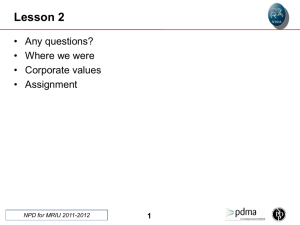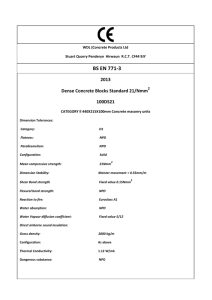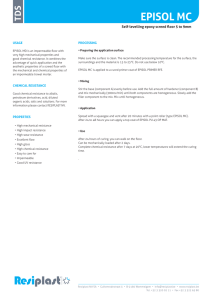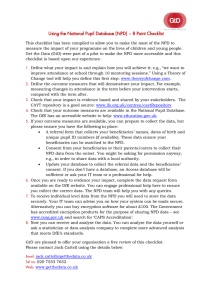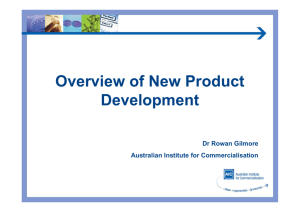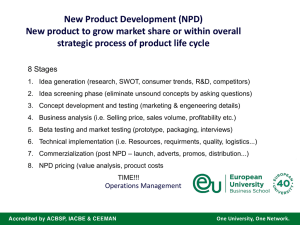Success_Factors
advertisement
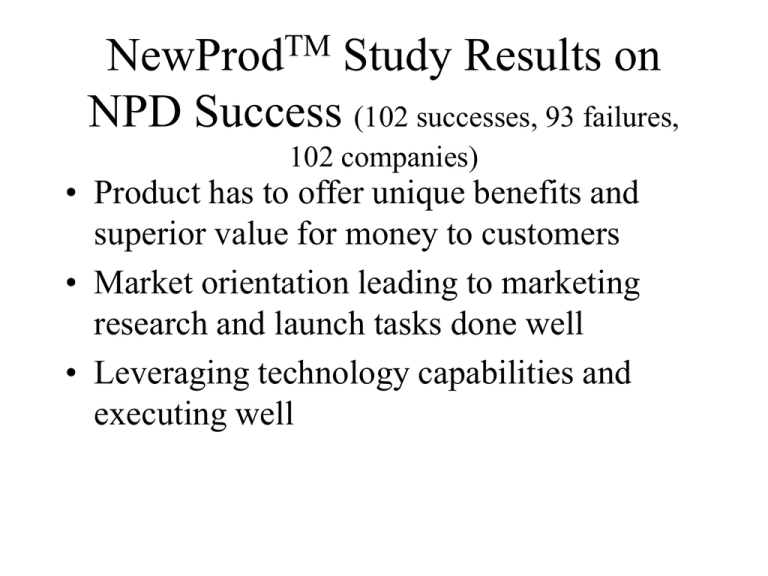
NewProdTM Study Results on NPD Success (102 successes, 93 failures, 102 companies) • Product has to offer unique benefits and superior value for money to customers • Market orientation leading to marketing research and launch tasks done well • Leveraging technology capabilities and executing well Stanford Innovation Project Study Results on NPD Success (86 successes and 86 failures) • Strong R&D with strong interface with both manufacturing and customer • Technically superior and unique products • Positive market environment: first to market and growing market • Significant value to customers • Leverage capabilities and resources Booz-Allen & Hamilton Study Results on NPD Success (700 firms) • Operating philosophy- internal growth • Organizational structure- greater crossfunctional influence and interactions • Manage the experience effect • Adaptive management style depending on type of new product – entrepreneurial- new to the world – collegial- new businesses and new lines – managerial- closely related new products Hewlett-Packard success factors • • • • • • • • • • understanding user needs strategic alignment competitive analysis and product superiority regulation compliance priority decision criteria list risk assessment product positioning product channel and support project endorsement by upper management total organizational support Critical success factors • Top three drivers – high-quality NPD process – defined NPD strategy – adequate resources and commitment to R&D • Important other drivers – use of high-quality cross-functional teams – senior management commitment – an innovative climate and culture – senior management accountability Fifteen Critical Success Factors Five ways to improve cycle time profitably • Do it right the first time • homework and definition • organize around a true cross-functional team • employ parallel processing • prioritize and focus Seven Goals of a NPD (similar to the requirements for speeding up cycle time) • • • • • Quality of execution Sharper focus, better prioritization fast-paced parallel processing true cross-functional team strong market orientation and hard wired voice of customer • better homework up front • products with competitive advantage Managing complex risky decisions • Break into smaller decisions • each decision process should reduce the risk of the next stage Managing risk • Lessen the amounts at stake – if the uncertainties are high keep the amount at stake low – as the uncertainties decrease the amount at stake can be increased – incrementalize the decision process – be prepared to pay for relevant information to reduce risk – provide for bail-out points

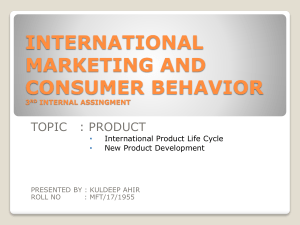
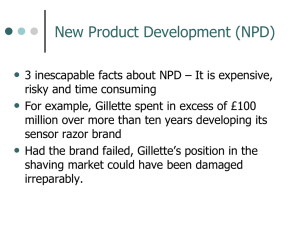
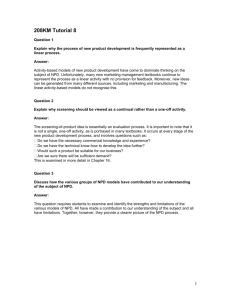
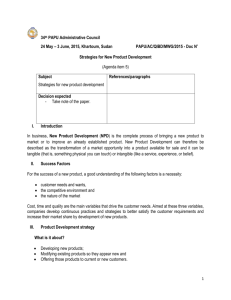
![Your [NPD Department, Education Department, etc.] celebrates](http://s3.studylib.net/store/data/006999280_1-c4853890b7f91ccbdba78c778c43c36b-300x300.png)
